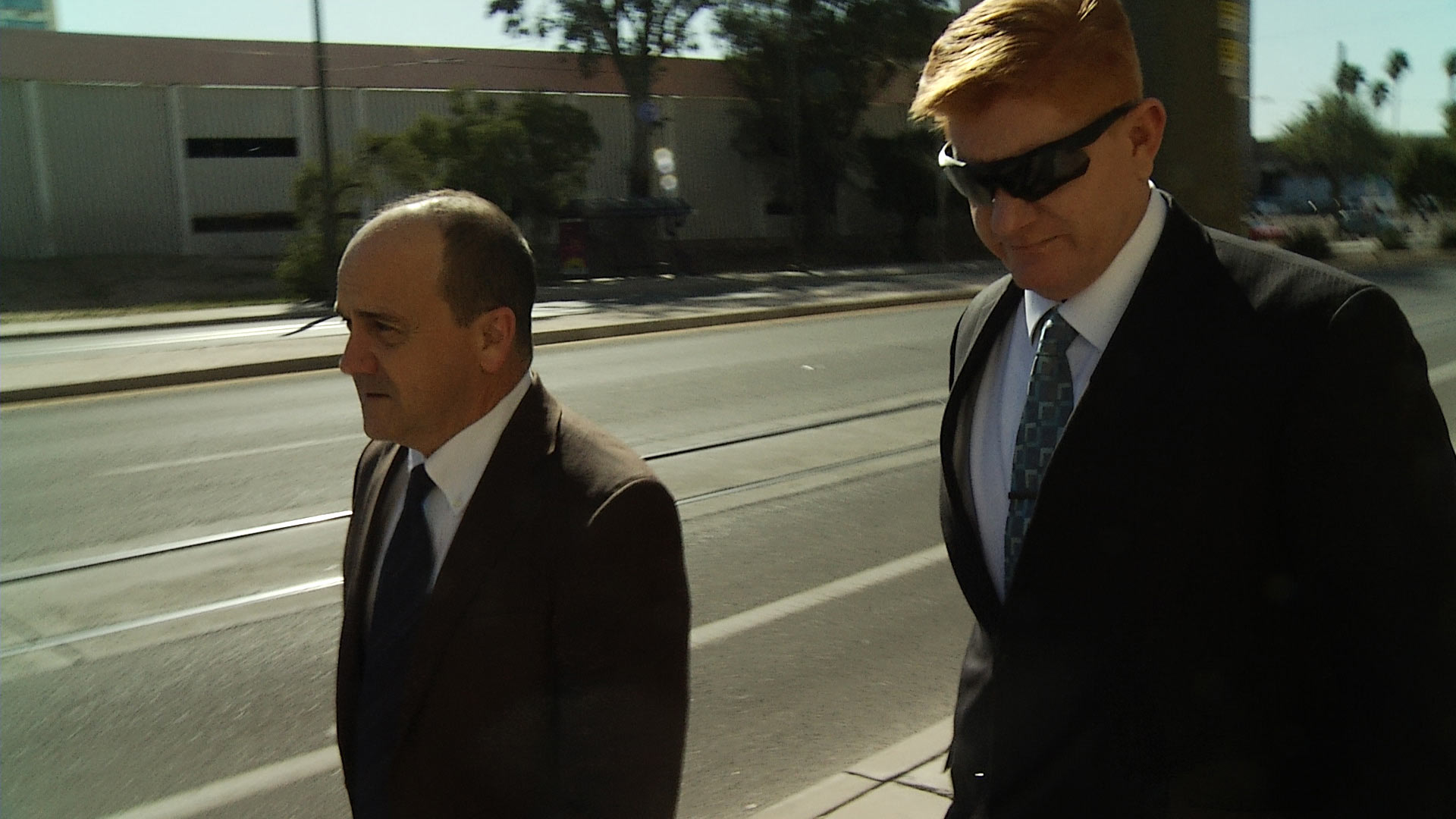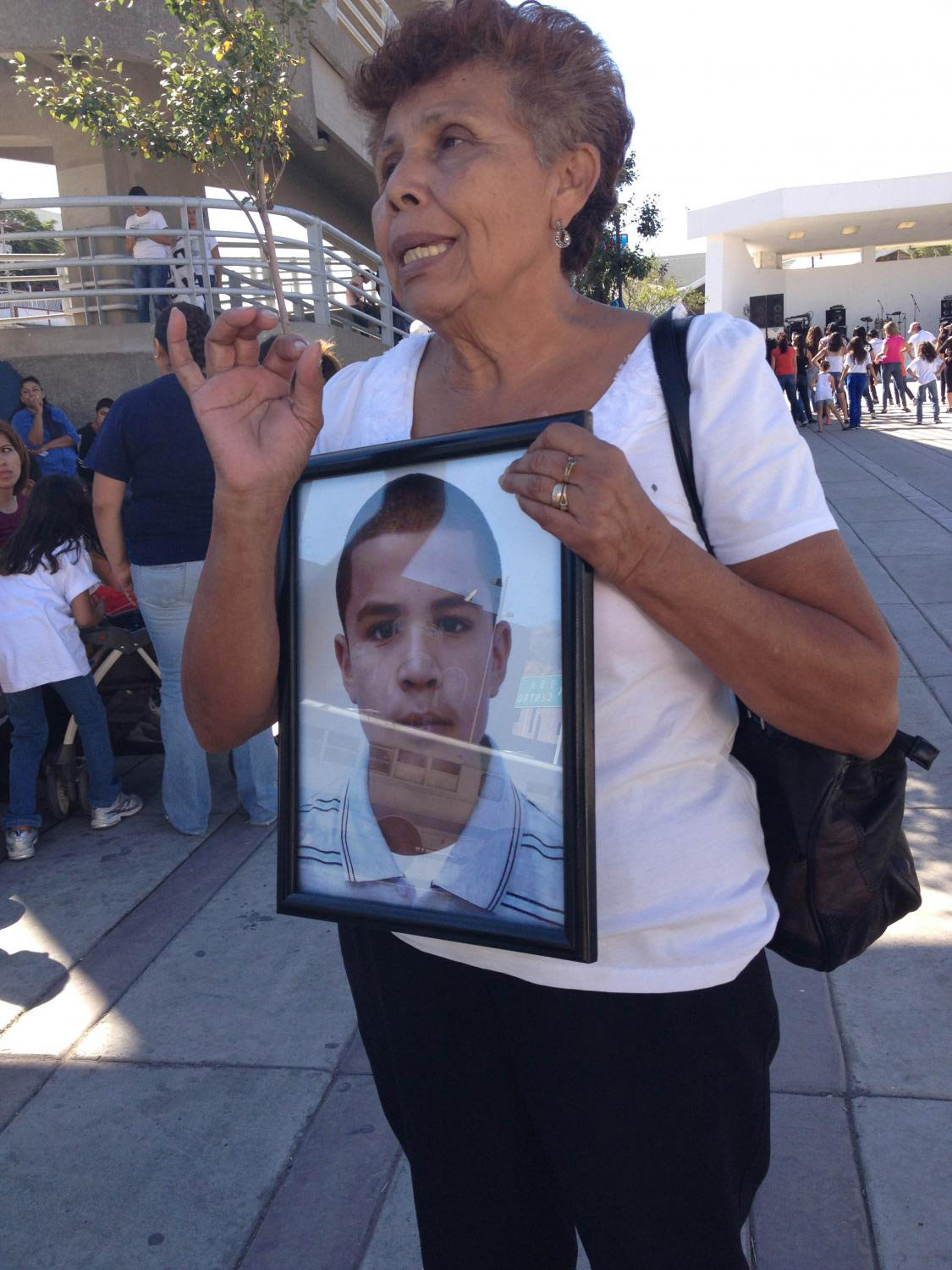 Border Patrol agent Lonnie Swartz, right, walks into federal courthouse with his attorney, April 2018.
Border Patrol agent Lonnie Swartz, right, walks into federal courthouse with his attorney, April 2018.
Federal prosecutors will once again try a U.S. Border Patrol agent who killed a 16-year-old boy in a cross-border shooting but who was earlier this year acquitted of murder.
The second trial against Lonnie Swartz begins Tuesday morning, six months after he was acquitted on a second-degree murder charge and five years since he fatally shot Jose Antonio Elena Rodriguez through a border fence dividing Arizona and Mexico.
This time, Swartz will be tried on charges of voluntary and involuntary manslaughter charges. A jury in April deadlocked on those counts and acquitted him of murder.
The U.S. Attorney's Office has declined to comment on the upcoming case and why it decided to pursue charges again.
 VIEW LARGER Taide Elena carries a portrait of her grandson, Jose Antonio Elena Rodriguez, who was shot and killed in October 2012.
VIEW LARGER Taide Elena carries a portrait of her grandson, Jose Antonio Elena Rodriguez, who was shot and killed in October 2012. It's extremely rare for a Border Patrol agent to be criminally charged involving a use-of-force case, but the agency was under heavy scrutiny over violent incidents when Swartz was first indicted in 2015, including many involving rock-throwers.
Still, it would be three years before Swartz was brought to trial.
In the meantime, a civil rights lawsuit filed by the ACLU on behalf of Elena Rodriguez's mother has been making its way through the courts but will likely have to be taken up by the Supreme Court before a decision is made. That's because his attorneys have argued that the American constitution didn't extend to Elena Rodriguez, a Mexican teen who was on Mexican soil when Swartz shot him. The 9th U.S. Circuit Court of Appeals, in an opinion conflicting with a different circuit, recently ruled that Swartz can be held accountable.
Swartz, who has been on leave and living in Nevada since the incident, will face another two-week trial starting Tuesday.
Prosecutors this spring focused on what they said was Swartz's frustration with rock-throwers. Assistant U.S. Attorney Wallace Heath Kleindienst said during closing arguments that Swartz "was fed up with being rocked" after being targeted in at least six other attacks.
Defense attorney Sean Chapman said there was "not a scintilla of evidence" that Swartz was angry or fed up. Chapman said Swartz shot because he was trying to protect himself and his fellow agents during a drug operation.

By submitting your comments, you hereby give AZPM the right to post your comments and potentially use them in any other form of media operated by this institution.